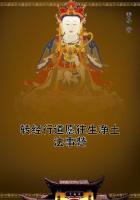SKIRMISHING.
"So the Rev. Joseph Bellamy Stoker has called upon you, Susan Posey, has he? And wants you to come and talk religion with him in his study, Susan Posey, does he? Religion is a good thing, my dear, the best thing in the world, and never better than when we are young, and no young people need it more than young girls. There are temptations to all, and to them as often as to any, Susan Posey. And temptations come to them in places where they don't look for them, and from persons they never thought of as tempters. So I am very glad to have your thoughts called to the subject of religion. 'Remember thy Creator in the days of thy youth.'
"But Susan Posey, my dear, I think you hard better not break in upon the pious meditations of the Rev. Joseph Bellamy Stoker in his private study. A monk's cell and a minister's library are hardly the places for young ladies. They distract the attention of these good men from their devotions and their sermons. If you think you must go, you had better take Mrs. Hopkins with you. She likes religious conversation, and it will do her good too, and save a great deal of time for the minister, conversing with two at once. She is of discreet age, and will tell you when it is time to come away,--you might stay too long, you know. I've known young persons stay a good deal too long at these interviews,--a great deal too long, Susan Posey!"Such was the fatherly counsel of Master Byles Gridley.
Susan was not very quick of apprehension, but she could not help seeing the justice of Master Gridley's remark, that for a young person to go and break in on the hours that a minister requires for his studies, without being accompanied by a mature friend who would remind her when it was time to go, would be taking an unfair advantage of his kindness in asking her to call upon him. She promised, therefore, that she would never go without having Mrs.
Hopkins as her companion, and with this assurance her old friend rested satisfied.
It is altogether likely that he had some deeper reason for his advice than those with which he satisfied the ****** nature of Susan Posey.
Of that it will be easier to judge after a glance at the conditions and character of the minister and his household.
The Rev. Mr. Stoker had, in addition to the personal advantages already alluded to, some other qualities which might prove attractive to many women. He had, in particular, that art of sliding into easy intimacy with them which implies some knowledge of the female nature, and, above all, confidence in one's powers. There was little doubt, the gossips maintained, that many of the younger women of his parish would have been willing, in certain contingencies, to lift for him that other end of his yoke under which poor Mrs. Stoker was fainting, unequal to the burden.
That lady must have been some years older than her husband,--how many we need not inquire too curiously,--but in vitality she had long passed the prime in which he was still flourishing. She had borne him five children, and cried her eyes hollow over the graves of three of them. Household cares had dragged upon her; the routine of village life wearied her; the parishioners expected too much of her as the minister's wife; she had wanted more fresh air and more cheerful companionship; and her thoughts had fed too much on death and sin,--good bitter tonics to increase the appetite for virtue, but not good as food and drink for the spirit.
But there was another grief which lay hidden far beneath these obvious depressing influences. She felt that she was no longer to her husband what she had been to him, and felt it with something of self-reproach,--which was a wrong to herself, for she had been a true and tender wife. Deeper than all the rest was still another feeling, which had hardly risen into the region of inwardly articulated thought, but lay unshaped beneath all the syllabled trains of sleeping or waking consciousness.
The minister was often consulted by his parishioners upon spiritual matters, and was in the habit of receiving in his study visitors who came with such intent. Sometimes it was old weak-eyed Deacon Rumrill, in great iron-bowed spectacles, with hanging nether lip and tremulous voice, who had got his brain onto a muddle about the beast with two horns, or the woman that fled into the wilderness, or other points not settled to his mind in Scott's Commentary. The minister was always very busy at such times, and made short work of his deacon's doubts. Or it might be that an ancient woman, a mother or a grandmother in Israel, came with her questions and her perplexities to her pastor; and it was pretty certain that just at that moment he was very deep in his next sermon, or had a pressing visit to make.
But it would also happen occasionally that one of the tenderer ewe-lambs of the flock needed comfort from the presence of the shepherd.
Poor Mrs. Stoker noticed, or thought she noticed, that the good man had more leisure for the youthful and blooming sister than for the more discreet and venerable matron or spinster. The sitting was apt to be longer; and the worthy pastor would often linger awhile about the door, to speed the parting guest, perhaps, but a little too much after the fashion of young people who are not displeased with each other, and who often find it as hard to cross a threshold single as a witch finds it to get over a running stream. More than once, the pallid, faded wife had made an errand to the study, and, after a keen look at the bright young cheeks, flushed with the excitement of intimate spiritual communion, had gone back to her chamber with her hand pressed against her heart, and the bitterness of death in her soul.
The end of all these bodily and mental trials was, that the minister's wife had fallen into a state of habitual invalidism, such as only women, who feel all the nerves which in men are as insensible as telegraph-wires, can experience.















